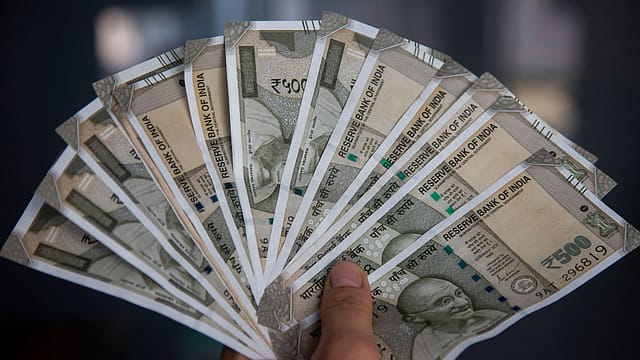India Inc's credit quality strong in first half of FY23
ADVERTISEMENT

The credit quality of India Inc. continued to strengthen in the first half of financial year 2022-23, carrying on with the momentum set in motion since the beginning of FY22, according to ratings agency ICRA.
In H1 FY23, instances of rating upgrades by ICRA were over three times that of downgrades, with ICRA upgrading the ratings of 18% of its portfolio entities on an annualised basis. The upgrade rate reflected a significant mark-up over the past 5-year and the past 10-year average of 11%, the ratings agency says.
Real estate, textiles, financials, engineering, construction, and roads sectors accounted for almost half of the total upgrades by ICRA in H1 FY23, while constituting one-third of ICRA's rated portfolio.
A majority of upgrades in the real estate sector were those of entities that are engaged in the leasing of commercial office space or warehousing assets wherein project completions, healthy leasing activity, and loan refinancing at more favourable terms improved their credit profiles.
In the textiles sector, ICRA upgraded the ratings of several branded apparel manufacturers as their business swelled on the back of the tailwinds of formalisation, including the shift in customer preferences towards branded wear. Also, select entities that are engaged in leather garment and woven apparel exports were upgraded as they experienced a strong overseas demand post the pandemic.
January 2026
Netflix, which has been in India for a decade, has successfully struck a balance between high-class premium content and pricing that attracts a range of customers. Find out how the U.S. streaming giant evolved in India, plus an exclusive interview with CEO Ted Sarandos. Also read about the Best Investments for 2026, and how rising growth and easing inflation will come in handy for finance minister Nirmala Sitharaman as she prepares Budget 2026.
In the financial sector, several small to mid-sized NBFCs with a loan book ranging between ₹500 crore to ₹10,000 crore, showing a track record of consistent business growth while maintaining their asset quality and capitalisation metrics witnessed upgrades.
In the roads sector, several annuity-based and hybrid annuity-based projects were upgraded driven by reasons, including reduction in execution and funding risks following project completions, and timely commencement of the semi-annual annuity payments from the concession authority, assuaging revenue risks.
"India Inc. has shown notable resilience in terms of maintaining and even strengthening its credit quality, against the backdrop of multiple exogenous factors in the form of geopolitical conflicts, supply chain disturbances, volatile energy prices, and the actions and reactions of monetary policy interventions across the world," says ICRA, adding that these developments have manifested in inflationary pressures, interest rate hardening, and the weakening of the Indian currency against the US dollar.
The rating downgrade rate at 5% remained on a leash in the first half of FY23 (6% in FY2022) in comparison with the past 5-year average of 12% and the past 10-year average of 9%. There were only five defaults in ICRA's portfolio in the recent half-fiscal, compared with 42 in FY22 and 44 in FY21, with four out of the five defaults being from the non-investment grade.
Meanwhile, CRISIL Ratings said corporate India's credit ratio continues to be high — at 5.52 times in the first half of this fiscal (H1-FY23) — underscoring ongoing broad-based improvement in India Inc's credit quality.
"Around 35% of all upgrades were from the infrastructure sector (including large realty players). Infrastructure sector is in a unique position of largely being a domestic story and generally decoupled from the global headwinds. Here, upgrades were driven by improved operating cash flows, completion of crucial project milestones and equity infusion," says Gurpreet Chhatwal, managing director, CRISIL Ratings.
